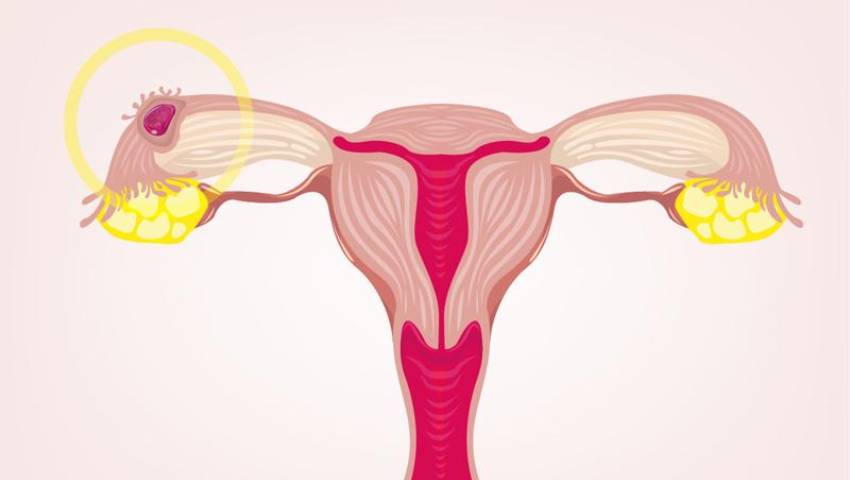
- 13/07/2023
- Dr. Kunaal Shinde
- 0 Comments
- Blog
Ectopic Pregnancy: Causes, Diagnosis, and Treatment
Ectopic pregnancy is a serious medical condition in which a pregnancy develops outside of the uterus. The fallopian tubes are the most common site for an ectopic pregnancy, but it can also occur in the ovaries, cervix, or abdomen.
Ectopic pregnancies are not viable, meaning that the embryo cannot develop into a baby. If an ectopic pregnancy is not treated, it can rupture, which can be life-threatening.
Causes of Ectopic Pregnancy:
The exact cause of ectopic pregnancy is not always known, but there are some factors that can increase your risk of having one. These include:
- Previous tubal surgery. If you have had surgery on your fallopian tubes, you are more likely to have an ectopic pregnancy.
- Infections. Infections of the fallopian tubes, such as pelvic inflammatory disease (PID), can increase your risk of an ectopic pregnancy.
- Endometriosis. Endometriosis is a condition where tissue resembling the uterine lining grows outside of the uterus. This can block the fallopian tubes and increase your risk of an ectopic pregnancy.
- Use of an IUD. Women who use an IUD are at a slightly increased risk of having an ectopic pregnancy.
- Age. Women over the age of 35 are at an increased risk of having an ectopic pregnancy.
Symptoms of Ectopic Pregnancy:
The symptoms of ectopic pregnancy can vary depending on the location of the pregnancy. Some common symptoms include:
- Pain in the lower abdomen.
- Bleeding from the vagina.
- Nausea and vomiting.
- Lightheadedness or dizziness.
- Shortness of breath.
Diagnosis of Ectopic Pregnancy:
If you are experiencing any of the symptoms of an ectopic pregnancy, it is important to see a doctor right away. Your doctor will perform a physical exam and may order blood tests and an ultrasound.
Blood tests can be used to measure the levels of human chorionic gonadotropin (hCG), a hormone that is produced during pregnancy. If the levels of hCG are high, but the ultrasound does not show a pregnancy in the uterus, this is a sign of an ectopic pregnancy.
Treatment for Ectopic Pregnancy:
The treatment for ectopic pregnancy depends on the location of the pregnancy and the severity of the symptoms. In some cases, the pregnancy may resolve itself. However, if the pregnancy is not resolving or if the symptoms are severe, treatment will be necessary.
The most common treatment for ectopic pregnancy is typically surgery. It can be used to remove the pregnancy and repair the fallopian tube. However, in some cases, surgery may not be possible and the pregnancy may need to be terminated with medication.
Recovery from Ectopic Pregnancy:
The recovery time from ectopic pregnancy varies depending on the type of treatment that was received. If surgery was performed, you will need to stay in the hospital for a few days. If medication was used, you may be able to go home the same day.
After you are discharged from the hospital, you will need to follow up with your doctor to make sure that the pregnancy has been successfully terminated and that there are no complications.
Preventing Ectopic Pregnancy:
There is no sure way to prevent ectopic pregnancy, but there are some things you can do to reduce your risk. These include:
- Avoiding smoking. Smoking can increase your risk of ectopic pregnancy.
- Getting regular checkups. If you have any risk factors for ectopic pregnancy, it is important to see your doctor regularly for checkups.
- Using birth control. Using birth control can help to prevent ectopic pregnancy.
Conclusion:
Ectopic pregnancy is a serious condition, but it is treatable. If you are experiencing any of the symptoms of ectopic pregnancy, please schedule an appointment with Dr. Shinde today.
Dr. Kunaal Shinde is a board-certified obstetrician-gynecologist with over 12 years of experience. He is a specialist in the diagnosis and treatment of ectopic pregnancy and other gynecological conditions. He is dedicated to providing his patients with the best possible care.

.png)